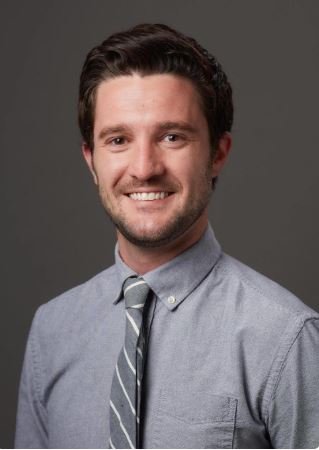
What did you study at Yale? What is your current profession/job?
When I was a student at Yale, I studied adipocyte (fat) stem cells in the department of Molecular, Cellular, and Developmental Biology (MCDB). I currently work as a Life Science Specialist at a global management consulting firm. In this role, I work with teams of ~5-10 consultants to address complex issues faced by clients ranging in size from small biotech startups to large pharmaceutical companies.
What do you like most about your current role? What do you find most challenging and/or rewarding?
The aspect of my current role that I like the most is the opportunity to help clients solve issues in a variety of fields. These fields include everything from oncology to drug delivery devices to veterinary pharmaceuticals. That same aspect can be, at times, the most challenging. In the span of a ~6 week case, you have to become an expert in the field. Although this can be difficult, it allows you to rapidly add to your professional expertise. The most rewarding part of my job is looking back at the end of each case and reflecting on the final product we deliver to the client.
How did your time at Yale shape your career trajectory?
I can safely say that I would not have considered a career in management consulting if I was not at Yale. I was surrounded by students who were interested in a variety of careers outside of academia, and it was through talking to them that I learned about consulting. Additionally, there are resources in place, such as the Graduate Student Consulting Club, which allowed me to not only prepare for a career as a consultant, but also help me navigate the complex and challenging interview process.
What are the main skills that you acquired as a GSAS student which help make you successful in your current career?
The most important skill that I acquired as a PhD student is undoubtedly problem solving. PhD’s at consulting firms are highly valued for their systematic approach to problem solving. Although the complex business problems facing our clients are different from those faced in the lab, you are expected to approach the issues in the same systematic and rigorous fashion.
Did you acquire any professional experience related to your line of work while in graduate school?
While I was in graduate school, I had the opportunity to work as a pro-bono consultant on two projects. These projects were integral to my early development as consultant, but more importantly, these projects gave me a glimpse into what it would be like to work as a consultant.
What advice would you offer PhDs who are interested in your line of work?
My advice would be to start early! The most important thing you can do is get involved. Start going to the Graduate Consulting Club meetings, and if you are still interested, try to become a team member on a pro-bono consulting case. Any experience that you have as a consultant prior to the application process is tremendously helpful. Lastly, reach out to friends and colleagues who currently work in management consulting, and ask them about their experience so far. Having an open and honest conversation about this career path is important to understanding if it’s right for you.
